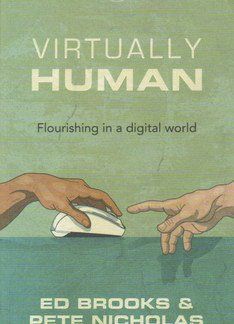This title develops the principle that technology is not value-neutral, because God has not made the world value-neutral. Many features of the digital world, particularly social media, convey a worldview at odds with the Bible. For Christians grappling with Facebook and Twitter, this book is helpful.
The book initially develops a theological framework. For any who regard digital technologies as mere tools, a good critique of neutrality is given. A ‘big story’ has been invented around technology and humanism. It is a narrative of humans bringing order out of chaos, transforming life to bring purpose and meaning, and allowing us to do super-human exploits.
By contrast, the biblical ‘big story’ is based on what God has done and is doing. There are grand themes of Creation, Fall and Redemption. The chaotic meaninglessness of life is not a starting point, but a consequence of human sin. Nevertheless, God’s work of redemption retains all that is worthy and cleanses that which is flawed. Using new technologies becomes part of our calling to ‘subdue the Earth’.
The book considers specific aspects of digital technologies, particularly social media and internet pornography. Millions of Facebook and Twitter users have powerful urges to define themselves. Being ‘liked’ or added as a ‘friend’ matters to them.
Our response should be to examine ourselves. ‘People are yet to master the ability to be in two places at once, so the reality is that when Facebook tells my friends that I am at home with my children, my children will tell you that I am actually on Facebook with my friends!’ (p.84). The allure of social media is to give us a secure identity, but only God can do this.
Although these chapters are helpful in showing how social media is moulded and defined by man-centred human philosophies, the biblical basis for discovering our identity before God is almost taken for granted. Yet, this identity is under intense attack from the same human philosophies. Here biblical revelation needs to challenge the evolutionary humanism of our culture.
The book’s conclusion rightly contrasts the virtual life portrayed by social media with the authentic humanity exhibited by Jesus Christ. However, I have concerns about what is unsaid: whatever happened to the ‘big story’? If we are to engage with the problems of digital technology, surely we have to be proactive about the way materialistic ideologies are moulding everything they impact (technologies and people)?
We need to present an alternative ‘big story’: the biblical worldview of Creation, Fall, and Redemption. This may well foment ideological conflict, but it provides a platform for presenting the gospel. This is important as we seek to obey the Great Commission.
If we do not engage in this conflict, then we become pietists, retreating into an evangelical castle, which affords safety but blunts our witness to the world.
Dr David Tyler
Mottram, Hyde




